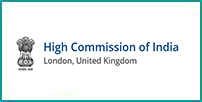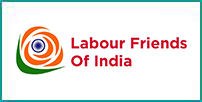
28 June 2023 | St James’ Court, A Taj Hotel
IGF Dialogues is an exclusive platform of over 20 peer-to-peer dialogues that convene prominent business leaders, policymakers, entrepreneurs, and investors to address various critical aspects of the UK-India partnership. The dialogues will explore opportunities, overcome challenges, and build alliances across sectors, stakeholders, and geographies, the outcomes of which will form a comprehensive published report.
Climate Action and Sustainability Dialogues
Closing The Carbon Circle – How do we make carbon a commodity and not a cost?
Hosted By

Chair:
Anouka Dhadda and Allegra Stratton, Co-Founders, Zeroism
Much is discussed about the costs of net-zero, but what about the savings? With high energy prices a concern for households and businesses alike, resource efficiency is an increasingly savvy and necessary way to decarbonise whilst cutting costs. We must now look at closing the carbon loop and pushing for governments to support the emerging virtuous circle.
09:00
Driving Innovation – Cleantech and the Road Ahead
Hosted By



Chair:
Nitin Jaiswal, Head APAC, Bloomberg
Cleantech offers immense potential to shape sustainable development. It is crucial to empower cleantech pioneers and catalyse the widespread adoption of sustainable solutions as well as address the unique challenges facing the sector including access to funding, regulatory barriers, and scaling the technology. This discussion will explore the untapped opportunities within the cleantech sector, shedding light on emerging trends, breakthrough innovations, and transformative solutions.
11:00
Making ESG Relevant in Your Business
Hosted By

Chair:
Ravi Chidambaram, Founder, RIMM
In an era of increasing focus on sustainability, understanding and measuring the impact of organisations goes beyond conventional ESG metrics. Sustainable investing grew by 15% in 2020 and 90% of CEOs today believe that sustainable practices are essential for success. This dialogue will delve into the broader landscape of sustainable impact measurement, exploring innovative approaches to assess social, environmental, and economic outcomes. It will also brainstorm new ways to effectively measure and report sustainable impact beyond traditional frameworks, enabling organisations to showcase their commitment to sustainability in a transparent and meaningful way.
13:00
Empowering Change – How Businesses Are Driving the Energy Transition in Developing Nations
Hosted By
.jpg)
Energy transition is crucial to achieve global emission reduction goals and to combat climate change. Developing nations are often at a disadvantage when it comes to energy transition due to lack of resources and support. The role of businesses in supporting energy transition in developing nations is crucial to achieve a sustainable future. In this dialogue, we will explore the challenges and strategies of collaboration between businesses, policymakers, and civil society organisations.
13:00
Building a Resilient Future: Climate Adaptation and Innovative Financing Strategies
Hosted By

.jpg)
Chair:
Karan Mohla, Partner, B Capital
Climate change poses a grave threat to the world, particularly to developing countries that face heightened vulnerability to its impact. It is important for experts, policymakers, and stakeholders to come together and explore innovative solutions that can mobilise resources to finance climate projects in developing countries. With a focus on blended finance, impact investing, and green bonds, this dialogue will explore practical strategies to accelerate the development and implementation of climate projects.
Sustainability at the centre of our plate: Embracing Millets as Game-Changers in global food systems
Hosted By

Chair:
Shauravi Malik, Co-founder, Slurrp Farms
The UN General Assembly has declared 2023 as the International Year of Millets, recognizing their potential for food security, nutrition, and sustainable agriculture. By the power of our plates we can promote a kinder, more equitable and resilient food system. This dialogue will explore the transformative role of millets in building resilient food systems and their promotion as a climate-resilient nutri-cereal in both India and the UK.
Sustainability at the centre of our plate: Embracing Millets as Game-Changers in global food systems
Hosted By

Chair:
Shauravi Malik, Co-founder, Slurrp Farms
The UN General Assembly has declared 2023 as the International Year of Millets, recognizing their potential for food security, nutrition, and sustainable agriculture. Our food choices have a significant impact and by the power of our plates, we can promote a kinder, more equitable, and more resilient food system. This dialogue will explore the transformative role of millets in building resilient food systems and how to promote them as a climate-resilient nutri-cereal in both India and the UK.
Geopolitics Dialogues
15:00
Labour Foreign Policy Briefing – Priorities for Purposeful Leadership in the UK and India
Hosted By

Chair:
Prof Manoj Ladwa, CEO and Chairman, India Global Forum
With today’s uncertain global dynamics and the various societal, economic, and environmental challenges facing world leaders, it is crucial to map out the key priorities for joint purposeful leadership between the UK and India. This dialogue will convene stakeholders from both countries to examine the evolving landscape, identify critical issues, and share insights on the effective strategies and qualities needed for purposeful leadership in the UK and India.
Governance and Social Impact Dialogues
09:00
The School to Work Transition – Harnessing Business Potential for Sustainable Skill-Building
Hosted By


Chair:
Lord Jitesh Gadhia
India's large youth population and workforce present immense growth potential, but youth unemployment at 18.5 per cent poses a significant challenge. The British Asian Trust and BT Group will convene business leaders at the Social Impact Boardroom 2023 to address the skills gap and transition from school to work, focusing on youth and gender equality.
10:40
Pathways to Excellence – Catalysing New Models for UK-India Collaboration in Higher Education
Hosted By

Supported By


Chair:
Amish Tripathi, Director, Nehru Centre
Sir Steve Smith, UK, Minister and International Education Champion, UK
The widespread global impact of education lends itself to strengthening and furthering the UK-India partnership in education and skills, fostering innovation, knowledge exchange, and sustainable growth for their workforces. Their joint efforts have already created numerous high-profile and long-standing bilateral co-funded partnerships from basic to higher education. This dialogue will examine how these initiatives can be developed further to forge stronger pathways in educating and skilling a global workforce.
13:00
Reforming Governance with Technology – Briefing to the Shadow Secretary of State for Work and Pensions, The Rt Hon Jonathan Ashworth’
Hosted By

In an era where technology reigns supreme, the potential for transformative change within government departments offers boundless possibilities for both the UK and India. This dialogue convenes private sector players and key figures from the Labour Party to unravel how cutting-edge technologies, including AI, can revolutionise the way government functions, amplifying efficiency, driving better outcomes, and delivering exceptional value to the taxpayer. Join the conversation and explore uncharted territories where innovation and governance intersect to chart a course towards purpose-led leadership.
Linking Hearts, Building Futures – UK-India Diaspora Relations Explored
A vibrant diaspora network coupled with the exchange of insights, experiences, and success stories can pave the way for a stronger people-centric UK-India relationship and help the two nations unlock the potential for future collaboration, innovation, and growth. This dialogue aims to explore the invaluable and multifaceted contribution of diaspora relations in strengthening UK-India ties and promoting economic, cultural, and educational exchanges.
Diversity and Inclusion Dialogues
09:00
From Glass Ceilings to Open Horizons – Paving the Way for Women in Business
Hosted By

Chair:
Ankita Vashistha, Founder, StrongHER Ventures
Female professionals and entrepreneurs face unique challenges at work, from cultural biases to limited opportunities for promotion to getting access to capital. Join us for a thought-provoking dialogue as we convene with like-minded entrepreneurs and experts to gain valuable insights and identify strategies to create a more equitable and inclusive business environment for women everywhere.
Diverse and Thriving – Empowering LGBTQ+ Professionals in the Modern Workplace
Hosted By

In today’s corporate landscape, it is crucial to foster a workplace culture that nurtures, supports, and uplifts LGBTQ+ professionals to create a truly inclusive workplace environment. This dialogue shines a spotlight on the transformative power of diversity and inclusion, with a specific focus on LGBTQ+ rights and representation as well as the complexities, challenges, and opportunities involved, paving the way for an inclusive and empowering environment that can propel organisations towards greater innovation, productivity, and success.
Trade and Investment Dialogues
Connecting the Dots – Unlocking Aviation and Regional Connectivity in UK-India Corridor
Hosted By

England’s Northwest represents a key driver of economic growth for the UK and continues to have untapped potential with regards to connectivity and trade ties with India. This dialogue will convene Labour MPs with businesses and airline groups to explore opportunities for closer trade ties and how expanded aviation links can help to achieve them.
Leading with Purpose – Reimagining the UK-India Trade and Investment Partnership
Hosted By

Since 2016, much attention has been devoted to the tantalising prospect of a historic UK-India FTA. However, despite rightly being a key priority for the UK-India partnership, the deal will only create the framework for closer ties, it will not provide the drive and purpose to fully realise their potential. This dialogue explores key strategic areas that the trade and investment partnership should be focusing on and the wider outcomes it can deliver for the two countries.
09:00
Trade & Investment briefing to Rt Hon Nick Thomas-Symonds
Hosted By

11:00
Prospects and Opportunities in the UK-India Defence Partnership
Hosted By

Shared geopolitical challenges are creating a huge opportunity for closer collaboration between the UK and Indian defence sectors. This dialogue will explore further opportunities in this exciting field and key pillar of the UK-India partnership.
From Opportunity to Advantage – Harnessing FDI Potential in Madhya Pradesh
Hosted By

From its strategic location, robust infrastructure, and abundant natural resources to its investor- friendly policies, skilled workforce, and diverse sectors, Madhya Pradesh presents a compelling proposition for FDI. This dialogue will focus on the unique advantages, success stories, and investment prospects that make the heartland of India an attractive investment hub and explore the immense growth potential that awaits those seeking to invest in the dynamic landscapes of Madhya Pradesh.
Global Leadership Dialogues
13:00
Leading with Purpose: Empowering Future Changemakers
Hosted By

Chair:
Gautam Shroff, Nuvama
This engaging discussion brings together industry leaders, experts, and aspiring changemakers to explore the role of purpose-driven leadership in shaping a better future. Through insightful conversations and shared experiences, we will delve into the strategies, mindsets, and practices that empower individuals to become effective agents of change. From social impact initiatives to sustainable business models, we will examine the transformative power of purpose and how it can inspire innovation, drive meaningful impact, and create a more inclusive and sustainable world. Don't miss this opportunity to be part of the conversation and gain actionable insights for leading with purpose in your own endeavours.
15:00
10 Distinctive Qualities of Changemakers: Driving Transformative Leadership
Hosted By

Chair:
Prof Hitendra Wadhwa, Professor at Columbia Business School in New York, Founder of Mentora Institute.
In a world filled with complex challenges, it is the changemakers who step forward, driven by their passion and determination to create positive change. These individuals possess unique qualities that set them apart and enable them to lead transformative movements. Join us for an engaging roundtable discussion as we explore the ten distinctive qualities of changemakers. Our participants, hailing from diverse backgrounds, will share their insights and experiences, shedding light on the key attributes that drive these exceptional individuals. Whether you aspire to make a difference yourself or are simply curious about transformative leadership, this discussion promises to offer valuable inspiration and practical insights.

© Copyright: All content © India Inc. Ltd. All rights reserved.